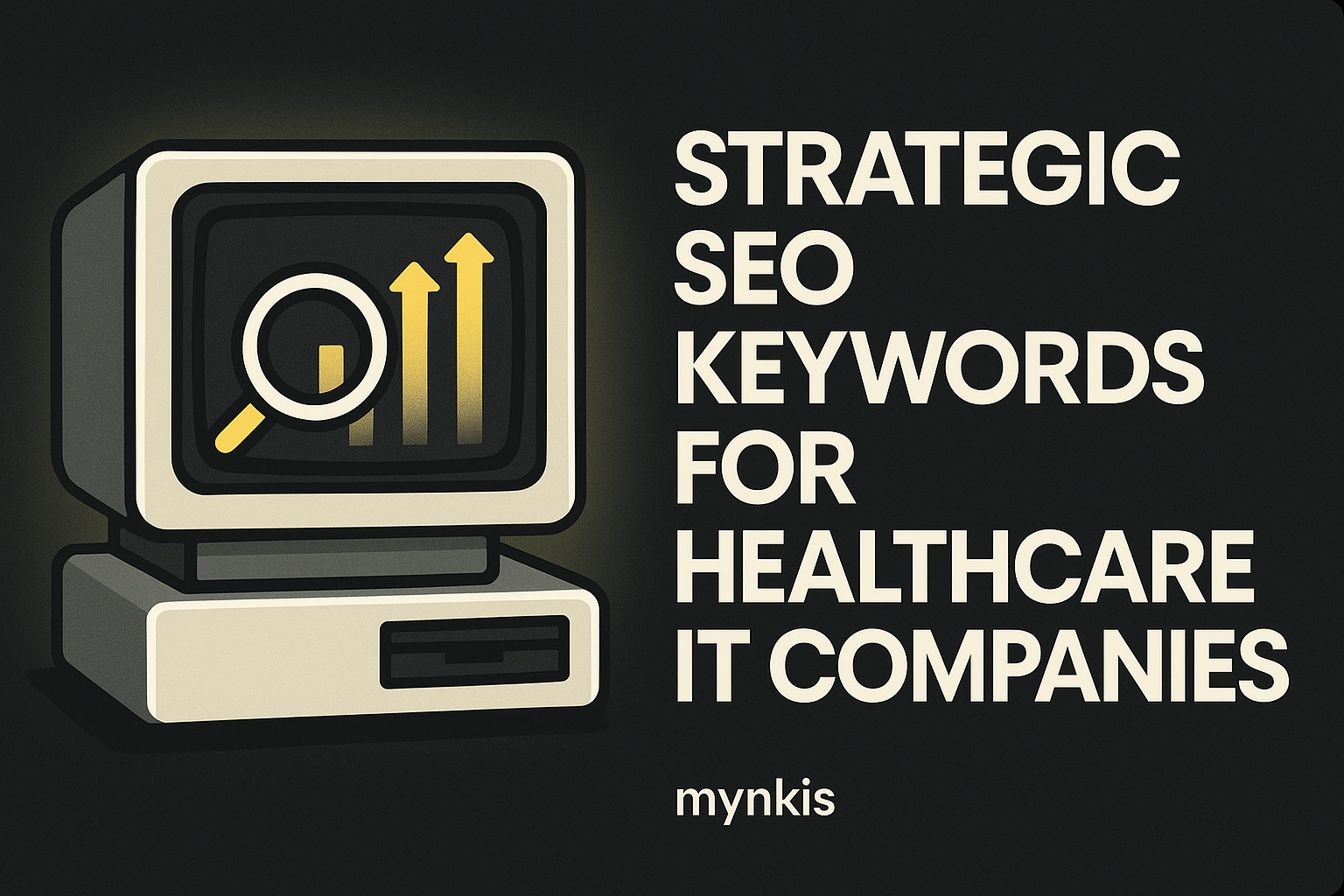Schedule a Demo
For IT companies specializing in healthcare solutions, the challenge isn't just building the best software or the most compliant websites; it's also ensuring they can be easily found by clinics and hospitals. At the heart of digital visibility lies SEO, specifically the art of optimizing for keywords that matter to your niche market. But what keywords should you target?
In my experience working with operations managers and healthcare IT leaders, the importance of selecting the right keywords can't be overstated. It's about balancing the technical with the practical. Not all keywords are created equal, especially when considering specialized solutions like patient portals, which are vital for enhancing the patient experience. From my discussions, words such as 'patient portal software' and 'HIPAA compliant web development' resonate heavily with healthcare institutions looking to digitize their operations.
Let's dig into some core keywords that have proven effective. 'Healthcare IT solutions' is a broad but powerful term. It positions your services within a comprehensive range, from bespoke software development to enterprise web solutions. Clinics often seek out solutions tailored for their specific needs; therefore, keywords like 'custom software development for healthcare' strike a cord, speaking directly to their unique requirements.
Specificity can lead to higher conversion rates. 'Electronic health records systems' and 'medical practice management software' are prime examples of keywords that attract decision-makers actively searching for those specific types of solutions. These keywords highlight your expertise in the exact areas that matter most to your clients, offering tangible solutions to their everyday operational challenges.
Healthcare is heavily regulated, so IT companies need to underscore their ability to navigate these regulations successfully. Keywords like 'HIPAA compliant IT services' show an understanding of legal necessities. Demonstrating a commitment to security and compliance through your SEO efforts not only enhances trust but also aligns with what healthcare providers are mandated to seek.
Keywords like 'user-friendly medical software' and 'intuitive patient portals' shine a light on the usability aspect, which is a massive deciding factor for healthcare facilities. From my years in the industry, I've seen how pivotal a seamless user experience can be in the decision to adopt new technology. It's not just about compliance or functionality—it's also about making the end-user's life easier.
Healthcare technology often needs to interface with other systems. Keywords such as 'interoperable healthcare IT' and 'integrated patient data management' become key. These phrases signal to potential clients that you understand the complexities of modern healthcare ecosystems and can deliver solutions that work seamlessly with existing infrastructure.
For IT companies focusing on regional markets, adding geotags like 'California healthcare IT services' or 'Chicago medical software developers' can greatly enhance visibility. This tactic ensures that your services appear to local healthcare providers, who might be more likely to convert due to proximity.
Staying current with industry trends can also be a powerful SEO strategy. Phrases like 'telemedicine solutions' and 'remote patient monitoring platforms' are rising in demand. Catering to these emerging needs shows foresight and positions your company as a forward-thinking leader in healthcare IT solutions.
Long-tail keywords offer another layer of precision in reaching your target audience. Phrases such as 'how to choose a secure patient portal' or 'best practices for HIPAA compliant websites' provide valuable content that addresses specific concerns, educating your market and building authority in your field.
Observing what keywords your competitors are ranking for can provide insights into what works within your niche. Tools like Ahrefs or SEMrush can help you understand the competitive landscape and identify gaps where your company can excel. This approach enables you to craft a keyword strategy that captures the attention your competitors are missing.
SEO is not a set-and-forget endeavor. Regularly monitoring keyword performance and adapting your strategy based on current data is crucial. Use tools like Google Analytics and Search Console to keep an eye on how your chosen keywords are performing, adjusting as necessary to stay ahead of the curve.
Producing content that answers the queries represented by your targeted keywords not only helps with SEO but also establishes your brand as a thought leader. Educational pieces, case studies, and blog posts that delve into issues relevant to your keywords can draw in an audience that is actively seeking solutions similar to what you offer.
In crafting your SEO strategy, it's essential to remain transparent and acknowledge the limitations of your solutions. For example, when promoting 'patient portal security', it's beneficial to note that 'based on available research, individual results may vary due to different regulatory environments and infrastructure'. By maintaining a balanced and honest approach, you cultivate trust, reinforcing your position as a reliable partner for healthcare organizations.
Lastly, while SEO can drive traffic, it's the quality of the interactions and relationships you build with clinics and hospitals that will define your success. Engaging genuinely with your audience, understanding their unique needs, and providing custom software development that transcends mere compliance into excellence will ensure your healthcare IT solutions not only rank well but truly serve the healthcare community.
